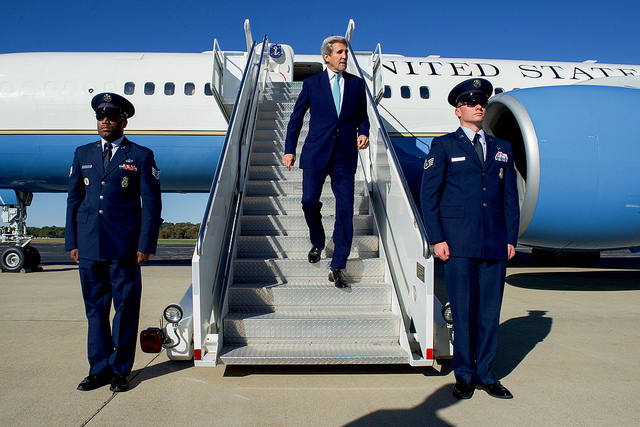
A New Phase of American Foreign Policy?
In Michael Mandelbaum’s new book “Mission Failure: America and the World in the Post-Cold War Era” the author argues that American foreign policy in the post-cold war period was focused on missions of transformation: state and nation building. Mandelbaum, the chair of the American foreign policy department at the Johns Hopkins School of Advanced International Studies, now argues that this period, which met with consistent failures, is over.
At an event heralding Mandelbaum’s new book last week, a panel discussion of policy practitioners and observers dissected the two pillars on which this book rests: were these missions unique to this period of American foreign policy, and has this adventuring period decisively ended? The panel was unanimous in its agreement that American state building in the Balkans, and intervention in Somalia, Iraq and Afghanistan all failed in their goals to bring stability and either national identity or the organs of governance where there was none before. Why the United States failed at these missions was resigned to almost a foregone conclusion: these missions were impossible from their inception. Either victims of poor intelligence or mission creep, American state and nation-building failed, by Mandelbaum’s account, because these changes must come from within and not be transplanted from without.
As one of the panelists pointed out, the U.S. military is very affective at day of – but it cannot, nor can the State department, deal with the day after. It is that realization that has informed much of President Obama’s retrenchment in the Middle East and North Africa, and bolstered Mandelbaum’s second argument: that this phase in U.S. foreign policy is over.
The end of the Cold War brought about a shift in the American tool belt of foreign policy. What had been relied on, strengthened, and improved so much throughout the Cold War – when troop engagements and military intervention was less thinkable – was American soft power. The strength of America’s cultural and ideological ideals was used to open countries to global trade, strengthen democracy, and broaden transparency and cooperation. America’s success and vibrancy is what pulled states to imitate its institutions and market economy – it led by example. With the absence of any serious global competitor, America became less reliant on these diplomatic and cultural tools of foreign policy, and undertook much more involved missions, committing American troops, officials, and development aid. With this increased reliance on hard power to affect missions of transformation came failures resulting from a lack of foresight, oversight, and direction.
The liberal world order that was largely constructed by the United States following World War II has been referred to as an empire by invitation. In this endeavor the spread of American institutions, political and legal constructs, and free market ideology created the world we have today. How was America so successful at world building, but not at state building? The United States’ greatest asset has always been its principles and values, its openness and flexibility, its individualism and its innovation. These ideals have not been imposed on states from without, but gained acceptance and attracted champions from within. While these concepts and constructs often come into direct conflict with traditional social, cultural, political and legal frameworks around the world, they are the strongest forces for stability and mutual development.
These American ideals, we can call them, are only as effective as America itself. When America is divided and polarized, its political institutions degraded and ineffective, and its liberties pressured by increasing inequalities, the ideals America espouses are degraded as well. America may not be destined to fail at state building – it did, after all, through invitation build the current structure of global trade. America did this not solely with overwhelming military or economic strength, though that was and remains an asset, but through conviction in its ideals, which have since spread and been adopted by peoples and governments from South America to South Asia. It is not solely American hard power that will bring increased stability, transparency, and accountability, but American soft power – it’s our ideals. And we have to be the first to live up to them and to rely on them.






